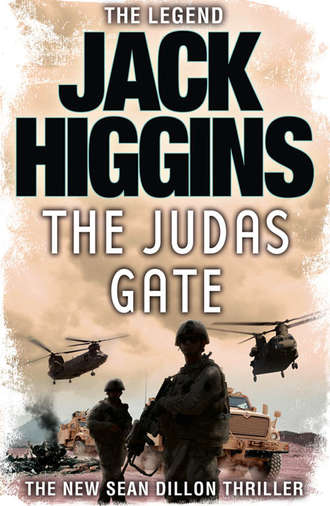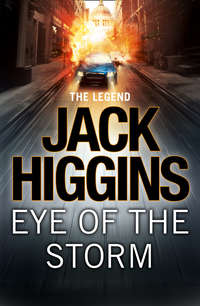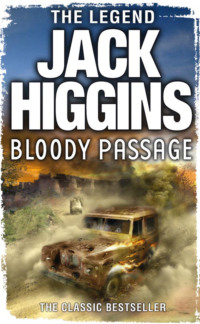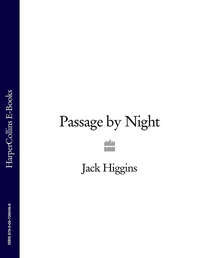
Полная версия
The Judas Gate
‘This time with Lermov and his people rooting out those assassins. Did you know he’s GRU Station Head in London now? He told me Putin has forgiven him. Me, too!’
‘Fine words, but after this you’ll deserve a medal.’
‘I’ll settle for never having to eat at the Lubyanka again. Are you happy now?’
Malik shrugged. ‘I should be, I suppose, but even the slightest hint of anything to do with Al Qaeda freezes the heart.’
‘Yes, the very name frightens the hell out of people,’ Holley agreed. ‘Do you think they might be recruiting for Afghanistan?’
Malik said quickly, ‘I wouldn’t have thought so. The Taliban are perfectly capable of recruiting for themselves.’
‘I’m talking about something different. There are many British-born Muslims fighting out there.’
Malik laughed. ‘Daniel, one hears stories, but this is nonsense, pure myth.’
‘I’m afraid not, old friend. I’ve seen the evidence, heard recordings of radio communications in the heat of battle, working-class accents from many of the great cities in the UK.’
‘I don’t believe it.’
‘I’ve heard it, Malik. In fact, Ferguson, Dillon and Miller have just had a meeting with the President in Washington to work out what to do about it.’
Malik was stunned. ‘All right, supposing it is true, what can anyone do to prevent it? If young British Muslims decide to take a holiday in Pakistan to visit the old folk, then end up in a training camp in Waziristan, who can stop them? It’s impossible.’
‘Well, Ferguson and his people are at least going to make an effort, and I’ve offered to help.’
Malik was truly shocked. ‘But why you, Daniel? This is not your business. You could be asking for big trouble.’
‘I have a grasp of the Muslim world that few Christians do. I speak Arabic and, as a young volunteer in the IRA, I was trained in terrorism at Shabwa. I wonder if Shabwa is still in business. And Omar Hamza, the camp commander? What a bastard he was.’
‘He would be seventy or more if he is still alive. Shabwa closed down some years ago, though. The IRA no longer used it and, as things changed for the German groups and ETA and the like, there was little need for the facility,’ Malik said. ‘The thought of young British Muslims using it, though… Why on earth would they want to come to Algeria for their training?’
‘You could have said that about the young Irishmen too,’ Holley told him. ‘Anyway, I’m out of here, off to London.’
‘Are you going to see Ferguson?’
‘Yes, I want to hear what he intends to do. I feel very strongly about this matter. If there is anything I can do, I will.’
Malik gave in. ‘So be it. The blessing of Allah go with you. Do take care, Daniel.’
‘Don’t I always?’
It was very quiet sitting there in the darkness, the long white curtains ballooning like sails at the window, and Malik went out to find a full moon and the terrace flooded with light. The vista in the night of the harbour below was astonishingly beautiful. He loved this city, always had, just as he loved Daniel Holley, but trouble and Daniel seemed to belong together naturally, and Malik was filled with a grim foreboding.
‘What now?’ he asked softly, leaning on the balustrade. ‘What next?’
3
The Gulfstream landed at Farley Field late that night. Ferguson’s Daimler was waiting, as well as the Mercedes provided by the Cabinet Office for Miller.
‘We’ll get together later,’ Ferguson said. ‘I’ve got to get cracking and prepare that report for the Prime Minister.’
His Daimler moved away and Miller said, ‘We’ll take you to Holland Park, Sean.’ His driver, Arthur Fox, was behind the wheel.
‘Care to join me for a late dinner there?’
‘No, I need to get to Dover Street and sort this sack of mail that Arthur has brought me. Ferguson’s not the only one with problems. I’ve got the Cabinet Office on my back.’ Mentioning his sister, he added, ‘I had a text from Monica while you were asleep. She’s enjoying being Visiting Professor at Harvard so much, she’s agreed to an extension.’
‘She didn’t tell me.’
‘Maybe she’s going off you, you mad Irish bogtrotter.’
‘And pigs might fly,’ Dillon told him. ‘Tell her congratulations and I’ll be in touch. Now we’ve got an hour before we get to London, so start on your mail and let me sleep.’
Two hours later, the Malik Shipping plane landed at London City Airport and taxied to the private facility—Daniel Holley had decided to leave Paris earlier than he had planned. His diplomatic passport sped him through and, forty-five minutes later, he was at the Dorchester, where he found Concetto Marietta, the guest liaison manager, waiting to escort him to one of the Park Suites.
He slept for a few hours and then he called Roper. ‘When can we meet? I’d love to see what your famous Holland Park safe house looks like from the inside.’
‘Ferguson’s seeing the Prime Minister this morning, and Miller probably feels he should show his face in the House, but I’m here. So’s Dillon, who’s upstairs asleep. Come along whenever you want; we’ll have lunch.’
‘I might just do that. I want to stop off and see a friend first, but then I’ll come over.’
‘I’ll see you when I see you.’
* * *
Holley walked up to Shepherd Market, past the restaurants and the shops, then paused at a door with the name ‘Selim Malik’ painted in gold above it, admired the Egyptian hand-painted temple effigies displayed on either side of the frame, then pressed a button.
The door opened and Selim was there, exactly the same as the last time Daniel had seen him: small and happy, with dark curling hair turning silver, olive face, fringe beard and good humour in his eyes. He wore a ruffled shirt, velvet jacket and trousers, as always.
He was crying as he embraced Daniel. ‘It’s so good to see you. My cousin Hamid phoned me to say I might expect you, but still I am overcome. This is a champagne moment!’
Selim Malik produced a bottle of Krug and poured each of them a glass, saying, ‘It’s so wonderful the way everything has turned out. You’ve outfoxed them all, even the great Putin. Hamid has told me of how you sorted those Albanian bastards out, and the Al Qaeda plot on Putin.’ He gripped Holley’s arm. ‘He will be your friend for life now.’
‘I didn’t do it for gain,’ Daniel told him. ‘I did it because what they were planning was wrong.’
‘You are a saint.’ Selim got up. ‘But you must take great care. People who say bin Laden is dead are stupid. What he is, what he stands for, will never die. This doesn’t mean I admire him. I fear him, but what I have said is true.’
‘I’m afraid you have a point,’ Daniel agreed.
Selim went into the other room and returned with a Gladstone bag. ‘I’ve been keeping this in my strong room. It’s exactly what you had last time.’
There was an ankle-holster, a silenced Colt .25 and a couple of boxes of hollow-point cartridges, a silenced Walther, ammunition, a razor-sharp flick knife and a bulletproof vest.
‘This is wonderful,’ Daniel said. ‘But hang on to the knife and the vest. I brought my own.’
‘You must be prepared for any eventuality,’ Selim said. ‘If word of your involvement ever got out, Al Qaeda would put you on its international hit list. The blessings of Allah would be on any man who disposed of you.’
‘Well, let’s hope they don’t hear. I’ve something else to ask you. What do you know about British-born Muslims fighting for the Taliban in Afghanistan?’
Selim frowned. ‘Where have you heard this? Some newspaper story, I suppose.’
‘Not at all. Selim, you’re my friend. Last time we met, we had to face bad men and great danger and you were brilliant, so believe me when I say I know for a fact that many young British Muslims are fighting in Afghanistan. The evidence has been presented to me. Let me tell you about it.’
When Holley was done, Selim was distressed. ‘What can I say? I must believe what you tell me is true. But a mystery man known only as Shamrock leading Taliban recruits in a successful battle with Allied troops? It still sounds incredible.’
‘Have you heard anything that would confirm it? Even a hint?’
‘I don’t know. I have been to North Pakistan and the border areas as an art dealer, and of course there are many Brits in that area, contractors dealing with the Pakistan Army, others offering their services as security experts, many of them obviously ex-soldiers. I am sure there is a lot of illegal arms-dealing with the Taliban, too. But these are just guys out to make a buck. This other business, this Shamrock…’ He sighed wearily. ‘It’s so nonsensical that it must be true. I shall ask around.’
Holley got up and picked up the Gladstone bag. ‘I’d appreciate it. I’m at the Dorchester. I’ll see myself out.’
Selim sat there thinking about it, then reached for his mobile and started to ring round, choosing a few old friends only, people he’d known in the art world for years; people he felt he could trust.
Military rule was the accepted way in Algiers, certainly to men such as Hamid Malik. Law and order was an essential requirement to the development of good business, and this benefited the poor as well as the rich. But even for a wealthy man, it was sensible to cultivate people in the right places. The man he was enjoying coffee with was certainly that: Colonel Ali Hakim, a no-nonsense military policeman. He and Malik had been close friends over years of political upset and violence, the kind that had made military rule so necessary in Algiers in the first place.
What Malik didn’t realize, however, was that Hakim had orders from the Foreign Ministry to cultivate him, with the aim of keeping an eye on Daniel Holley’s activities. Holley’s access to the international scene was undoubtedly of advantage to the government, but his past argued the need for a certain control as well. Which was where Hakim came in.
Malik poured the Colonel another coffee and Hakim said, ‘And how is Daniel? I was told he went to Paris on your company plane.’ He smiled gently. ‘Forgive me, but air traffic control passes such information to my office on a regular basis.’
‘Of course,’ Malik said. ‘And I understand.’ He was tense and his hand shook as he poured another coffee.
Hakim said, ‘You seem out of sorts. Is something worrying you?’
Malik said, ‘How long have we been friends?’
‘I would say thirty years. What’s brought this on?’
‘Through years of unrest, bloodshed, revolution, fundamentalist terror, one government after another—and yet here we are, still just as much friends as when we were dodging bullets together back at the university. If I can’t trust you, I can’t trust anyone. Would you agree?’ Malik asked.
Hakim said, ‘Of course.’ He put down his cup. ‘What is this, old friend?’
So Malik told him everything. The Albanians and the business with Putin, Afghanistan and Shamrock.
When he was finished, he said, ‘What do you think?’
He had made the worst mistake of his life, but Colonel Ali Hakim, delighted at such a treasure trove of information, managed to look alarmed and worried at the same time.
‘This is grave news indeed. We must proceed very carefully. Daniel will be seeing your cousin, Selim, in London?’
‘That’s right. He said he would value his opinion.’
‘And this General Charles Ferguson? I know of him, of course. He is a major player in the world of anti-terrorism and covert operations. So Daniel intends to offer his services in this affair?’
‘So he says, but what do you think about British Muslims operating with the Taliban?’
‘My friend, thirty years in my line of work means that nothing surprises me any longer. The Muslim population of Britain is substantial these days. That a few misguided young men would be tempted to join in the battle for the prospect of glory would not surprise me. But only a few, I think.’ He reached for his cap and swagger stick and got up. ‘I must go now. Try not to worry. I’ll keep a close eye on things, I promise you. If anything of interest turns up, I’ll report it to you. It would be useful if you could do the same.’
He went down the outside steps and walked away through the garden. Malik watched him go, suddenly feeling very much better.
Like many Arabs, Ali Hakim had grown tired of the uncertainty of Arab politics, the power usurped by one general after another, and the autocracy of the men with their oil billions to back them up. And then Osama bin Laden had appeared like an avenging angel, instantly embraced by Muslims all over the world, Colonel Ali Hakim among them. In spite of NATO and Britain and America, Hakim still believed in what to him was the nobility of bin Laden’s message. He had served Al Qaeda ever since.
He sat in his police Land Rover on a bluff looking out to sea, an encrypted mobile in his left hand. It had a tape device as well, and he switched on to record and dictated everything Malik had said. He felt no guilt. This was too important. He ended by punching his personal recognition button and hitting ‘Send’.
Hakim dealt with a man known as the Preacher, the individual responsible for all London-based operations, who had been placed in charge by Osama bin Laden himself. Thanks to modern technology, the Preacher remained anonymous and untraceable, though he knew the identity of everyone with whom he dealt.
But this did not apply to Ali Hakim. Uncomfortable with entrusting a mystery man with his life, Hakim had sought expert help from Wali Sofit, a computer expert of genius who, unfortunately for him, was serving fifteen years’ imprisonment for transferring many thousands of dollars to various bank accounts in Algiers. Presented with Hakim’s special problem and even more special mobile phone, plus the promise of future leniency, Sofit had gone to work. Hakim had told him he believed the Preacher to be a major criminal of some sort. Sofit had been somewhat surprised to come up with the name of a Professor Hassan Shah, based in London, but was delighted to be transferred to a soft job in the prison administration offices as a reward for his skill.
Ali Hakim waited in the Land Rover until a reply came back.
Your information of crucial importance. It will be dealt with as a matter of the highest priority.
Hakim switched off. So that was that. He felt sorry for his old friend Malik, and he’d always liked Holley, but the cause he served was more important than individuals. He switched on his engine and drove down into the city towards the police headquarters.
The man known as the Preacher, Hassan Shah, continued to sit on the bench outside the London School of Economics, where he had taken Hakim’s call. A pleasant-looking man of medium height, he was wearing a khaki summer suit, a faded denim shirt and tinted Ray-Ban sunglasses with steel rims. His black hair was too long.
Forty years of age, an academic and a working barrister when he wished it, with no wife or girlfriend (which made some people talk), he lived alone in the pleasant Edwardian villa where he’d been born in Bell Street, West Hampstead. His parents had departed for Pakistan years ago, his father having retired as a surgeon.
He was thinking of them now because of Hakim’s recording, thinking of Pakistan and the visit he had made on a holiday when he was sixteen, when he’d been taken to a youth camp and Osama bin Laden himself had appeared. The speech he had made had shaped Shah’s life.
Shah was a practising Muslim, but in a quiet way, nothing flamboyant. His rapid rise both as an academic and a barrister had, to a certain extent, been because he was a Muslim. The Foreign Office had sent him to Bosnia to investigate war crimes and then, pleased with his work, had sent him again and again, to Iraq many times and Kosovo. He’d been noticed, no question of that, and his success in court on a few difficult cases had led to the position he held now: Professor in International Law at the London School of Economics.
But he’d been noticed elsewhere also, the approaches cleverly disguised: simple requests for legal opinions relating to Islamic matters. Eventually, he discovered that, in effect, he’d been working for Al Qaeda without knowing it—and then he’d realized he didn’t mind; in fact that he welcomed the idea. Really, an opportunity to serve the cause was what he’d been looking for all his life. His own experience of the law, the courts, the legal system, the behaviours of the kind of people involved—they’d all taught him a great deal about human nature. He knew what made people tick, how to handle them, and most important of all, what made people afraid.
To run the London operation for Al Qaeda required brains and organizing ability. When it came to necessary violence, he only had to make a call to bring in whoever was best for the job. An inner circle of twenty stood ready to act.
The beauty of it was that not one of them knew Hassan—they connected by encrypted mobiles only. Shah remained just a voice on the phone: the Preacher.
Yes, it all worked extremely well.
‘Let’s see what we can do about this,’ he murmured softly, and he made a call.
* * *
Selim Lancy was the result of a mixed marriage. His father, a sailor, had insisted he be baptized Samuel, then gone back to sea, never to return. So his mother had made it Selim, the Muslim equivalent, and raised him in the faith. He never tried to pretend he wasn’t Muslim, and was particularly handy with his fists when he joined the army, 3 Para, where he endured three hard years in Iraq and Afghanistan, rising to the rank of Corporal. His service ended with one bullet through his left side and another in the right thigh.
He passed through the rehabilitation centre, where doctors put him together very nicely, but the army decided that enough was enough and he was discharged.
He returned home, and moved in with his mother, who was still fit and well at first, then started to attend the mosque again. He was surprised at the respect everyone gave him, and then realized why—when overtures were made suggesting that, as a good Muslim, he could serve Al Qaeda well. The idea appealed to him, just for the hell of it; for the truth was, he was anything but a good Muslim.
He made a living as a hired driver now. Sitting behind the wheel of a silver Mercedes, handsome enough in a dark blue suit and regimental tie, he was eating a chicken sandwich when his special mobile sounded.
‘Where are you?’ Shah asked.
‘Oh, it’s you, boss. I’m at the back of Harrods, waiting for a customer. I’m sitting behind the wheel of my new car—a second-hand Mercedes. My compensation money from the army finally came through.’
‘Well, that’s nice for you,’ Shah told him.
‘I haven’t heard from you for a while. Is this a business call?’
‘You could say that. I want you to check on a man called Selim Malik. He’s an art dealer with a place in Shepherd Market.’
‘What’s he done?’
‘He could be showing an unhealthy interest in rumours of British Muslims serving with the Taliban in Afghanistan.’
‘They’re not bleeding rumours, they’re facts, boss. I should know. I probably killed a few of them over there.’
‘That isn’t the point. I want to know if he’s actively investigating these stories. Check with other Muslims in the market; see what you can find out. No rough stuff. He’s precious cargo.’
‘Why’s that, boss?’
‘He knows things and he’s got a friend named Daniel Holley, who’s a killer of the first order. He may look Malik up. If he does, you must let me know at once. I’ve found a security photo of Holley. You’ll find it on line now.’
Lancy thumbed away at his mobile and Holley appeared. ‘He doesn’t look much to me, boss.’
‘Don’t go by looks, idiot. Holley’s a nihilist. That’s someone who believes nothing has any value and so he kills without a second of regret. That includes you.’
‘I’ll bear it in mind. When do you want this?’
‘A couple of days. Do what you can.’
Shah hung up. Now, he thought, what to do about Shamrock. He’d been shocked to hear the name from Hakim. He checked his watch. The stupid bastard was still up there at thirty thousand feet for at least another couple of hours. Better to wait and try to contact him at the Talbot office. He got up from the bench and walked quickly across the campus towards the university buildings.
At that same moment, Shamrock was sitting in the first-class compartment of a British Airways jumbo-jet flight from Cairo. His name was Justin Talbot. He was forty-five and looked younger, favoured dark cropped hair and a slight stubble to the chin, the fashion of the moment. He wore jeans, a light open-necked khaki shirt and a dark blue linen jacket. His face was heavily tanned, as if he’d been out in the sun a lot, which he had, and had an aristocratic look to it.
Members of the cabin crew had earlier noted that his English had a public school edge to it, and he spoke with a cynical good humour that they’d found as intriguing as the fact that he was described on the passenger list as Major Talbot.
One of the girls approached and said, ‘It always gets boring with so few passengers. Not much to do.’
‘Nobody’s got any money at the moment. You’re lucky to have any passengers.’
She smiled. ‘I suppose you’re right. We’ll be landing in an hour or so. You’ll be glad to stretch your legs, I bet. It’s a long trip, Cairo to London.’
‘Actually, I started in Peshawar yesterday. Stopped off in Cairo on business, then joined you.’
‘Pakistan! I hear it’s bad on the North-West Frontier these days. Are you in the army, Major?’
‘Not any more. Twenty-odd years was enough. Grenadier Guards. I did a certain amount in Northern Ireland, both Gulf wars, Bosnia and Kosovo, then two tours in Afghanistan. I was lucky to get out of that in one piece. When I was shot in the right shoulder,’ he smiled, ‘I decided that was it and took my papers.’
He didn’t mention the Military Cross he’d earned in Afghanistan, and the years with the SAS and the Army Air Corps. The young woman nodded seriously. ‘You’ve done your bit, if you ask me. What do you do now?’
‘I work for the family firm, Talbot International. We sell trucks to the Pakistan Army, Jeeps, second-hand armoured cars and helicopters.’ He smiled. ‘Have I disappointed you?’
She shook her head. ‘The other side of war.’ She hesitated. ‘Do you miss it? The dark side, I mean?’
‘Let’s say there’s nothing quite like it. There’s no drug that could possibly match the force, the energy, of the killing time in which you’re immersing yourself. War itself is the ultimate drug.’
She looked a bit shocked. ‘Well… business must be booming, with the war spilling over from Afghanistan. Can I get you a drink?’
‘Large vodka would be good, with iced tonic water and a twist of lemon.’
She was back in three minutes and handed it to him. ‘Enjoy.’
He drank half of the drink straightaway and sat there, suddenly yawning. Since Lahore yesterday morning, he’d only had four hours’ sleep. He finished the drink, put the glass down, tilted his seat back. A hell of a trip, and Afghanistan had been particularly rough, but bloody marvellous. The buzz of action never failed to thrill him. It was what he’d missed when he left the army.
You could make millions out of the sale of second-hand military equipment in Northern Pakistan—but there was a lot more money to be made from dealing in illegal arms. Even respectable firms were at it, and nobody was more respectable than Talbot International. Its Chairman, General Sir Hedley Chase, presented the face of integrity itself at the small but elegant office in Curzon Street. The real business took place in Islamabad, where dozens of firms jostled one another for advantage.
It had been only a step from selling illegal arms to providing training in their use. He’d enjoyed every moment of that in the mountains over the border in Afghanistan, and then it had been only logical to take the next step—from training the Taliban to leading them in battle. He’d immediately been seized by the old thrill, and he felt no guilt at all.











